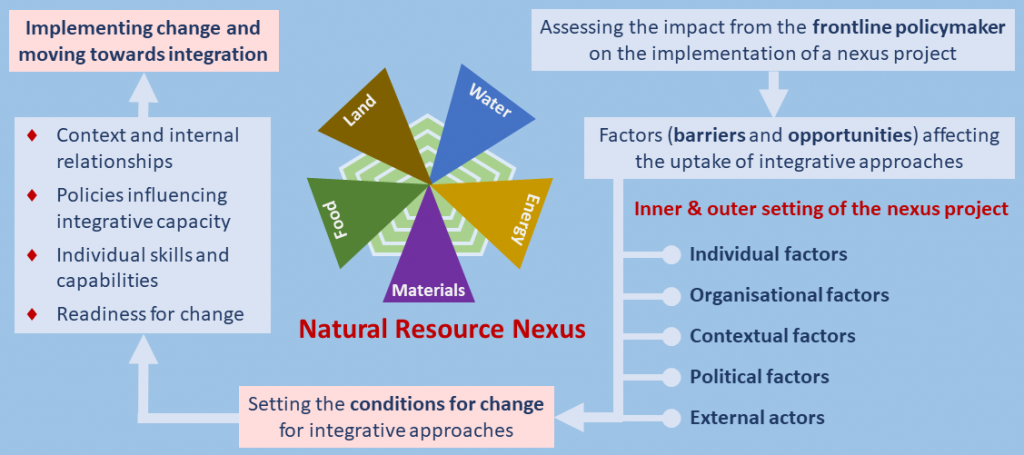Breaking down barriers to sustainability transition
The call for intersectoral action in addressing complex environmental problems, such as land degradation, biodiversity loss and carbon emissions, has become increasingly pressing due to the complexity and uncertainty behind these challenges. These policy problems are referred to as “wicked problems” because they lack a single solution, which highlights the need for cross-cutting and intersectoral approaches that can address the challenges.
The idea behind integration is to bring together knowledge and expertise from different disciplines to address environmental challenges. The sector-focused or business-as-usual approaches are not enough to address these interconnected challenges, which is why there is a growing need for the transformation of entire production and consumption systems, cooperation across sectoral silos, and policy pathways that promote sustainable natural resource use.
The nexus approach is a cross-sectoral paradigm that aims to generate relevant knowledge about the critical interlinkages and interactions between multiple sectors. This knowledge can help decision-makers identify and develop governance and management approaches across natural resources and spatial scales. The nexus approach provides opportunities for integrated planning, management, and governance of natural resources, and it can also allow relevant actors to consider complex challenges and trade-offs in important decisions affecting natural resource use.
However, there are many barriers and untapped opportunities facing ongoing efforts to move away from established sectoral policies and entrenched sectoral silos. While there have been limited reflective case studies on the practical application of integrative approaches to natural resources management, our recent paper offers an initial contribution by discussing a policy practitioner’s perspective on applying the nexus concept in an IO.

The present research found that individual factors had the most significant impact on the perceived success of the analysed nexus project, primarily due to the team’s composition and the degree of discretion and autonomy given to the individuals involved. The values and norms of the individuals, particularly their openness to embrace new knowledge and change, allowed the project to progress. Conversely, organizational factors were considered more of a barrier. The absence of active leadership and clear guidelines for the nexus project created a degree of autonomy that allowed new ideas to be proposed and employed with success. The findings conform with earlier work on frontline policy implementation and provide valuable lessons for researchers and practitioners considering a nexus approach.
Overall, the results of our research emphasize the importance of having a theoretical understanding of complex systems and the role of individuals as change agents in organizations. Further research is needed to improve our understanding of the role of public officials and policy practitioners in adopting novel concepts and policy tools designed to address complex societal challenges.
‘The mirage of integration: Taking a street-level perspective on the nexus approach’ has been published in Environmental Innovation and Societal Transitions, 46, March 2023, 100700. Filip Aggestam, at the Institute of Forest, Environmental and Natural Resource Policy (INFER) at the University of Natural Resources and Life Sciences (BOKU) and the European Forest Institute (EFI) Forest Policy Research Network (FPRN), was the lead author, together with his co-authors Michal Miedzinski, at the University College London, and Raimond Bleischwitz, at the Leibniz Centre for Tropical Marine Research (ZMT).
The article is available for downloading here: https://www.sciencedirect.com/science/article/pii/S2210422423000102